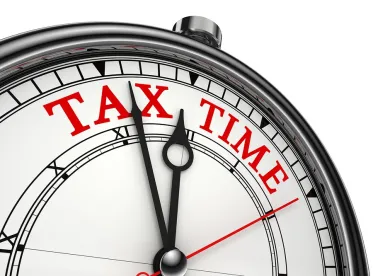The property tax appeal deadline for Allegheny County is quickly approaching. All appeals must be filed on or before March 31, 2017. Under the right circumstances, a property tax assessment appeal can save your business substantial money─this year and into the future.
How can you determine if your business might benefit from an appeal? You should consider an appeal if the assessed value of your property is more than: (1) an estimate of the property’s fair market value (“FMV”) as of January 1, 2012 (the “base year”), or (2) the property’s current FMV, reduced by the common level ratio (“CLR”). The CLR is different for each county and changes every year. The CLR, published by the State Tax Equalization Board, is intended to represent the ratio of assessed value to actual FMV for each county for the prior calendar year. Significantly, in a 2015 Court of Common Pleas ruling, Judge Wettick ordered that the Allegheny County Board of Property Assessment Appeals and Review (“BPAAR”) is required to apply the CLR to all appeals based on the current year’s FMV. This ruling benefits taxpayers.
The CLR applicable to 2017 tax appeals is 87.1%. By way of example, assume that your property is currently assessed at $1 million. Taking the CLR into account, the implied FMV of your property is $1,148,110. Therefore, an appeal may be warranted if you believe that the current FMV of your property is actually less than $1,148,110. An appeal may lead to savings even if the current FMV of your property is above its current assessment. If, after a hearing, the BPAAR determines that the current FMV of your property is $1,100,000 ($100,000 above its assessed value), the new assessment would be $958,100 after applying the CLR. Your business would benefit from the lower assessed value in 2017 and going forward until there is another county-wide reassessment or until you make improvements that warrant a reassessment.
There are many reasons why a property’s assessed value might be higher than its 2012 base year value or its current FMV as reduced by the CLR. One reason, discussed further below, involves the improper assessment of certain industrial equipment that is excluded from property taxation under Pennsylvania law. One way this can happen is if your business makes capital improvements and the assessment is increased based on the cost estimates found in permits filed with the taxing bodies rather than on a true increase in FMV. If you think a commercial property tax appeal might benefit your company, please contact our team to discuss your situation. In many cases we can undertake a free evaluation of whether we can handle your appeal on a contingent fee basis. This no risk consultation may save your business money in 2017 and beyond.
Pennsylvania’s Broad Property Tax Exclusion for Industrial Equipment Compliments the Trump Administration’s Pro-Growth Initiatives
Pennsylvania owners of manufacturing and industrial properties have reason for optimism as Donald Trump begins his first term as President. Trump won the election in large part due to his commitment to revitalize the Country’s manufacturing and industrial sectors. He has proposed sweeping reforms of tax, regulatory, trade, and energy polices. For example, he campaigned on a plan that would give firms engaged in manufacturing in the U.S. the option to expense capital investments, and would lower the corporate tax rate from 35% to 15%. [1] While Pennsylvania property owners and business leaders evaluate how these proposals might impact strategic investment decisions, they should also keep in mind Pennsylvania’s long-standing, pro-business industrial equipment property tax exclusion.
Pennsylvania law excludes from property taxation all “machinery, tools, appliances and other equipment contained in any mill, mine, manufactory or industrial establishment.” [2] The Pennsylvania Supreme Court has recognized that the “machinery and equipment exclusion clearly evidences a legislative intent and public policy to promote a favorable business climate in Pennsylvania by providing tax relief for Pennsylvania industries.” [3] Consistent with this intent, Pennsylvania courts have generally interpreted the industrial equipment exclusion broadly─one ruled that an entire steel manufacturing facility fell within the statutory exclusion. [4]
To satisfy the requirements of the industrial equipment exclusion, a taxpayer must present evidence that the improvement, “whether fast or loose,” is: (1) used directly in manufacturing the products that the establishment is intended to produce, (2) necessary and integral to the manufacturing process, and (3) used solely for effectuating the manufacturing purpose. [5] Below are examples of the types of improvements that courts have excluded from property taxation under this rule:
-
Large lumber drying kilns as well as reinforced concrete flooring necessary to support the kilns’ concentrated loads, doors described as movable walls equipped to be hermetically sealed, ventilation fans integrated into false ceilings, motorized roof vents, and high-pressure water-spraying systems; [6]
-
Oil tanks actively used in the refining process; [7]
-
Railroad and overhead crane tracks designed to act as large conveyor belts; [8]
-
Slag pits designed to cool slag to ensure a desired texture;
-
Sintering plants, and ore and coke screening stations even when the roof and siding on each would have collapsed if the inner machinery were removed;
-
Elevated platforms that held equipment integral to the industrial process; and
-
Foundations supporting and structures enclosing coal bins, conveyor systems, magnetic separators, bucket line elevators, coke ovens, blast furnaces, convertors and other similar heavy machinery.
The above list reveals that certain improvements that might ordinarily be considered fixtures rather than personal property are nonetheless entitled to the industrial equipment exclusion from real property taxation.
If you believe that your property may be over-assessed because industrial equipment has been included in its assessed value, or if your business is contemplating a substantial improvement, please feel free to contact our team for advice and assistance.
Notes:
[1] https://www.donaldjtrump.com/policies/tax-plan/.
[2] 72 P.S. § 5020-201(a).
[3] F&M Schaeffer Brewing Co. v. Lehigh County Bd. of Appeals, 610 A.2d 1, 6 (Pa. 1992).
[4] Wheeling-Pittsburgh Steel Corp. v. Bd. of Assessment Appeals of Westmoreland County, 360 A.2d 265, 267 (Pa. Commw. Ct. 1976).
[5]Jones & Laughlin Tax Assessment Case, 175 A.2d 856, 861 (Pa. 1961).
[6] BFC Hardwoods, Inc. v. Bd. of Assessment Appeals of Crawford County, 771 A.2d 759, 761 (Pa. 2001).
[7] Gulf Oil Corp. v. Delaware County Bd. of Assessment Appeals, 489 A.2d 321, 325 (Pa. Commw. Ct. 1985).
[8] United States Steel Corp. v. Bd. of Assessment and Revision of Taxes of Bucks County, 223 A.2d 92, 95 (Pa. 1966). The remaining bulleted examples are also from this case.




 />i
/>i

